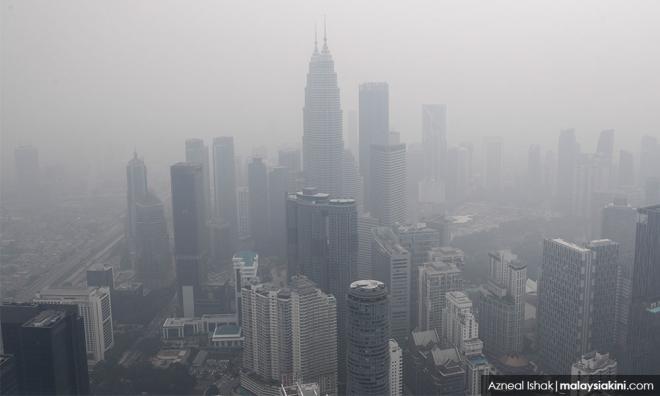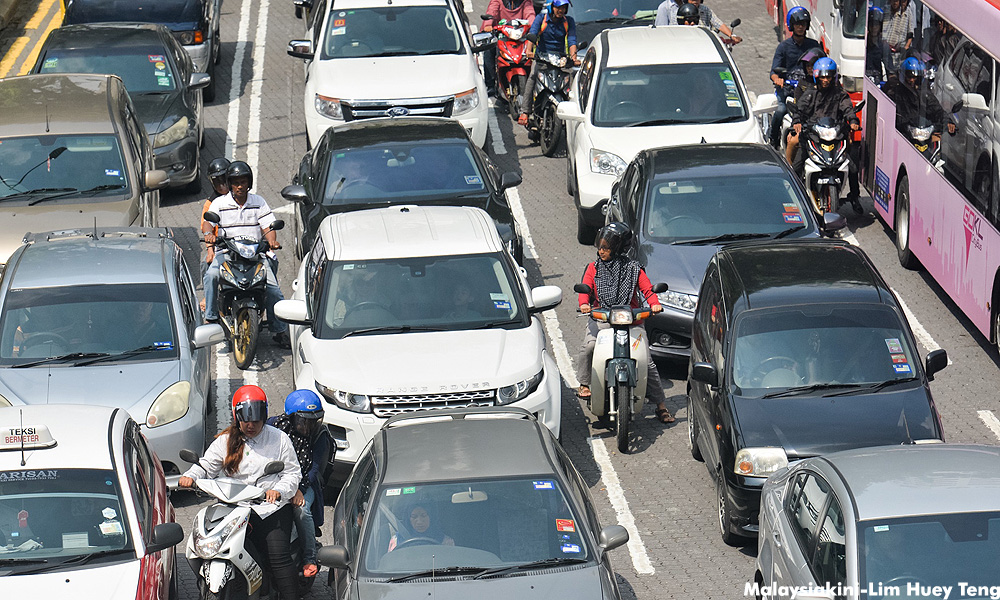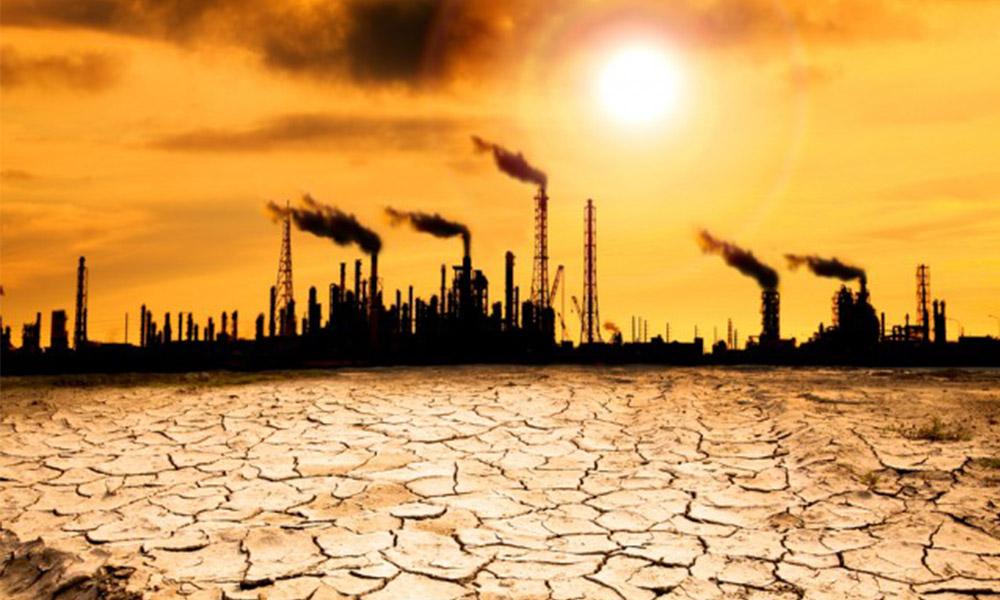
Repose, renewal, adaptation. These are the more uplifting narratives coming from the tragic coronavirus updates overwhelming my news feeds.
First up, the environment. It is, at last, taking a rest from the relentless noise and emissions from human activities and the free markets that pride continual economic growth over environmental sustainability.
Yes, even scientists are detecting less vibration on the earth’s upper crust since factories are shuttered, mass transit frequency reduced, airlines grounded and people restricted to staying home.
The irony of all this? We get to temporarily breath cleaner air - through our face masks.
The coronavirus pandemic is tragic. Obviously. But, if not for the staying-home, physical distancing and global pause in economic production, we would be idling and burning up fuel in the suffocating bottleneck traffic daily. What is the solution?
I can’t see one for now, given that more than 550,000 new cars are jammed onto our three-lane roads and toll gates nationally each year, and increasing.
It just does not make any sense whenever I see one person driving a medium-sized air-conditioned sedan with four empty seats any hour of the day. Our personal lifestyle and professional work point to a losing battle.

We have yet to try out a practical solution that other major cities have successfully implemented: designated express lanes for high-occupancy vehicles.
Until then, the temporary reduction in vehicular traffic over the past weeks of the movement control order (MCO) has effectively lowered the level of our greenhouse gas emissions as in other industrial cities.
Using the Penang Green Council’s carbon footprint calculator, I worked out that driving a Perodua Myvi from Kelana Jaya to KLCC – that’s about 40km on a return trip – in a working week will emit a total of 1.54 tonnes of carbon dioxide in a year.
After cross-checking with various carbon footprint websites, the mathematical consensus is this: You will emit about one tonne of carbon dioxide equivalent when you burn up 420 litres of unleaded petrol.
Assuming your monthly fuel usage is 140 litres per car, your carbon footprint would come to about four tonnes in a year, excluding your other domestic usage of electricity and gas.
For context, the average carbon footprint for each Malaysian currently is 8.03 tonnes, compared to a world average of five tonnes. Yes, we are relatively high emitters.
According to Nasa’s Earth Observatory, “the average global temperature on Earth has increased by a little more than one degree Celsius since 1880. Two-thirds of the warming has occurred since 1975, at a rate of roughly 0.15-0.20°C per decade”.

The carbon footprint target to keep world temperatures from breaching the 2°C threshold of global warming is three tonnes per person. This looks unachievable on paper – unless we adapt our lifestyle and consumption habits to “essential goods and services” as re-defined during the pandemic.
The past weeks have given us pause to do a stocktake of our hierarchy of needs and wants. Panic buying has eased somewhat. It is now more about adapting to a “new normal” where essentials take priority over the incidentals, however they are defined.
Regardless of what the “new normal” will be months from now (for some, living alone, isolated from friends and family is ‘normal’), Covid-19 will chart its own curve. Its chemistry, biology and mutation will dictate its virulent spread, and continually test our dominion over the Earth and our faith in humanity.
Are we becoming more alarmist than rational, more conservative than liberal, self-seeking than altruistic, religious than atheistic, prayerful than irreverent?
Various faith groups have interpreted the global spread and environmental abuse as a warning, an apocalyptic sign that worse is yet to come if we do not live in harmony with the environment, and get along with one another.
The coronavirus has certainly moved me to think about what really matters, and the mundane goods and services that I have taken for granted. How long before we can feel the rush in our oxytocin and serotonin, hormones that determine our sense of well-being?
A cancer survivor and friend, pondering on the “eventual resultant good (arising from the pandemic) to all mankind”, alluded to whether the “unbelieving, perplexed over uncontrollable situations” will ever seek clarity on what had caused this pandemic.
Or, will they be resigned to thinking that it is “merely a cycle of natural events”?
What is certain though, he said, is there will be “an altered worldview, humbled by the knowledge that mankind, and I, can never fully decide the outcome of life, that life is a gift”.
Hence, the reiteration that our personal actions during this pandemic will impact on another’s health safety, our carbon footprint and ultimately, the environment we live in.
ERIC LOO is the founding editor of the academic journal Asia Pacific Media Educator. - Mkini



No comments:
Post a Comment
Note: Only a member of this blog may post a comment.